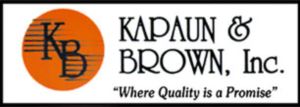
Significant changes are on the horizon for the heating and cooling business! Cooling systems transitioning from R-410a to newer refrigerants like R-454B refrigerant and R-32 refrigerant will be implemented in 2025. These new coolants are engineered to be better for the environment and satisfy revised regulations about global warming. But what does that mean for your existing HVAC system and upcoming services?
This change will minimize the environmental footprint of our air conditioning systems. Starting with 2025, new AC systems will employ an alternative class of refrigerants that are more compatible with climate goals. If you're considering getting an AC replacement soon, this is the ideal time to learn more about how these updates can affect your home's comfort.
Why Is R-410a Refrigerant Being Phased Out by New Regulations?
For years, R-410a was the standard refrigerant for residential air conditioners because of its efficiency. But analysis uncovered that R-410a still negatively impacts global warming. Because of this, the Environmental Protection Agency (EPA) established an initiative back in 2021. The industry will steadily phase out R-410a to introduce refrigerants that are more eco-friendly.
The HVAC industry has undergone transitions like this before. When the industry phased out R-22 (commonly called Freon) to R-410a, homeowners like you had to follow suit. And in the same way, this transition will affect how systems are engineered as well as the optimal methods for HVAC maintenance. Both residents and HVAC technicians need to prepare for these new refrigerants if they want to continue enjoying the most reliable, most economical cooling possible.
Which New Refrigerant Is Replacing R-410a?
The coming refrigerants fall under the new "A2L" classification and contain the newest R-454B refrigerant and R-32 refrigerant coolants. They're created to offer the same effective cooling while significantly reducing their global warming potential (GWP) compared to R-410a.
R-454B refrigerant is believed to be particularly useful due to its GWP being approximately 78% less than R-410a. While R-454B refrigerant is technically more flammable than R-410a, enhancements to system configurations and maintenance practices will ensure servicing is just as safe to perform. Additionally, modern cooling systems using R-454B refrigerant are significantly more energy efficient, resulting in big savings on energy bills over time, especially if you stay on top of routine HVAC maintenance.
This change isn't only about replacing the refrigerant—it affects the whole HVAC system because the characteristics of R-454B refrigerant make it incompatible with older systems. Eventually, every household and business using R-410a will have to transition to one of the new systems.
R-410a Replacement: How Can I Prepare to Change to New HVAC Refrigerants?
Switching to the new refrigerants will not be as simple as replacing what's used in your home's HVAC system. That's because the distinct properties of R-454B refrigerant and R-32 refrigerant make existing R-410a systems incompatible. But don't worry—you can continue to use your current R-410a system for now. Just remember that as time goes on, the expense of repairs and tune-ups will increase as R-410a becomes scarcer.
Preparing in advance is the best way to manage things. If your AC system is already nearing the end of its lifespan, this is the ideal time to think about upgrading to a newer model that uses the new R-454B refrigerant. Plus, the team here at Kapaun & Brown can assist you in upgrading with flexible options for HVAC replacement financing.
What Type of Cooling Refrigerant Is in My HVAC System?
Unsure which refrigerant your AC system utilizes? In general, you can easily learn this information by examining the label on your outdoor unit. This label displays the type of refrigerant, the model number and many other specifications about your cooling system.
But if you have difficulty reading the label or can't find your user manual, remain calm! You can always call one of the skilled technicians at Kapaun & Brown to assist you in identifying the refrigerant. Get all the info you need by reaching out at 641-812-2028.
